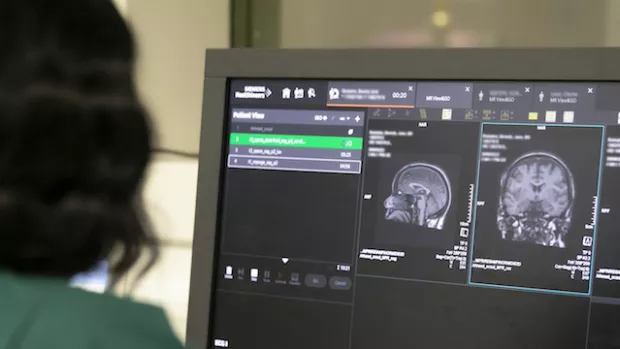
What causes MS?
No one knows for sure why people get MS. It's likely to be due to a mix of genes, something in your environment and some lifestyle factors.
Is MS a genetic or hereditary condition?
MS is not directly inherited from parent to child. There's no single gene that causes it. Over 200 genes might affect your chances of getting MS. But genes are only part of the story.
MS can happen more than once in a family, but it's much more likely this will not happen. There's only about a 1.5% chance of a child developing MS when their mother or father has it (that means around one in 67 get it). There's only around a 2.7% chance that you'll get MS if your brother or sister has it (around one in 37 get it). In 2014 a very large study found that MS may be even less likely to be passed on than these figures suggest.
Are you born with MS?
You’re not born with symptoms of MS. If you develop MS it’s usually diagnosed between the ages of 20 and 40. However, it can also develop earlier or later than that. There’s currently no way to tell whether someone will develop MS later in life.
Read more about genetics and MS
MS risk factors
There isn’t just a single cause of MS that we know of. But there are some risk factors - things that could increase your chance of developing MS. Some risk factors for MS include how old you are, your biological sex, your family history and some ‘environmental factors’. For example, some common infections, smoking and vitamin D levels might affect the risk of developing MS.
Environmental factors
MS is less common in tropical countries near the equator that get lots of sunshine. More people have MS in places further away from the equator like Britain, and that's true no matter what your ethnic background is. Other countries where MS is more common include Canada, the US, Scandinavia, southern Australia and New Zealand.
Infections
There's evidence that some viruses, and maybe bacteria, can help trigger MS.
A common virus called Epstein Barr virus (it causes glandular fever) has been linked to MS. Most people have had this virus but they never get MS. This shows that, like genes, infections might play a role but they aren't the whole story.
Vitamin D
There's more and more evidence that low levels of vitamin D, especially before you become an adult, could be a factor in why people get MS.
Our skin makes most of our vitamin D when we're out in the summer sun. We also get some from food like oily fish, eggs, spreads and breakfast cereals with added vitamin D in them. You can also get extra vitamin D from supplements (but too much can be harmful).
A blood test can show if your levels of vitamin D are low.
Read more about vitamin D and MS
Lifestyle
Smoking
Studies show you're more likely to get MS if you smoke. If you have MS in your family, your risk of getting it too could go up if you're exposed to passive smoking (breathing in other people's smoke).
If you have relapsing MS and you stop smoking it can slow down how fast your MS might change to secondary progressive MS.
Obesity
Studies show that getting MS could be linked to being very overweight (obese), especially when you were a child or young adult. This might be because obese people are often low in vitamin D. Obesity can also make your immune system overactive and cause inflammation in your body. There may be other reasons we don't understand yet.
Of course, not all people who are very overweight get MS, and having MS doesn't mean you are or were obese. But if your risk of getting MS is on your mind, perhaps because a close relative has it, then your weight is a risk factor you can change.



